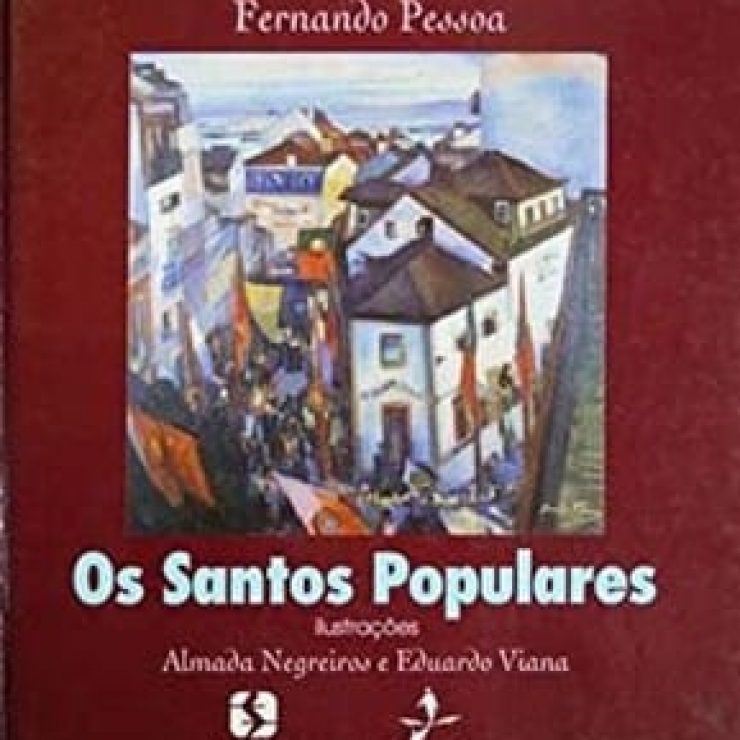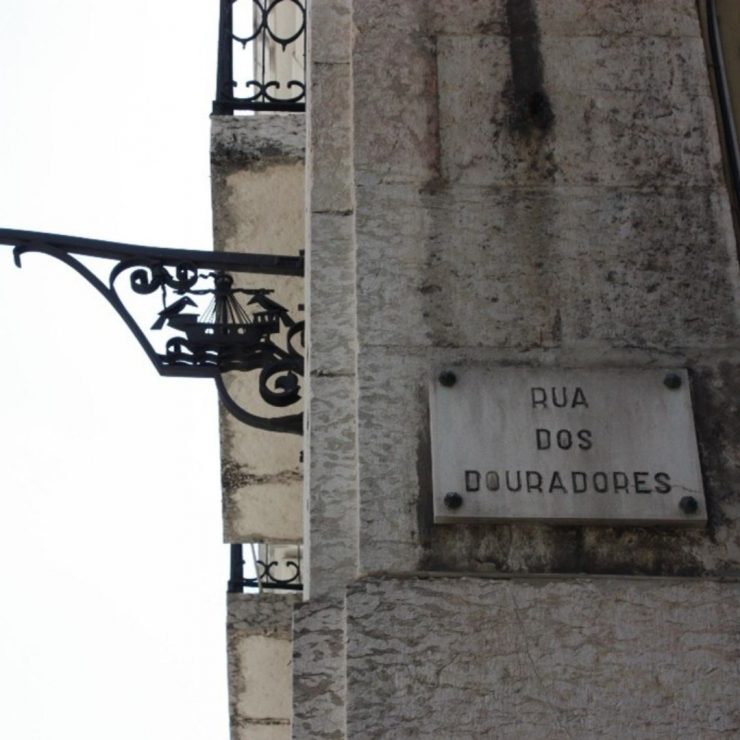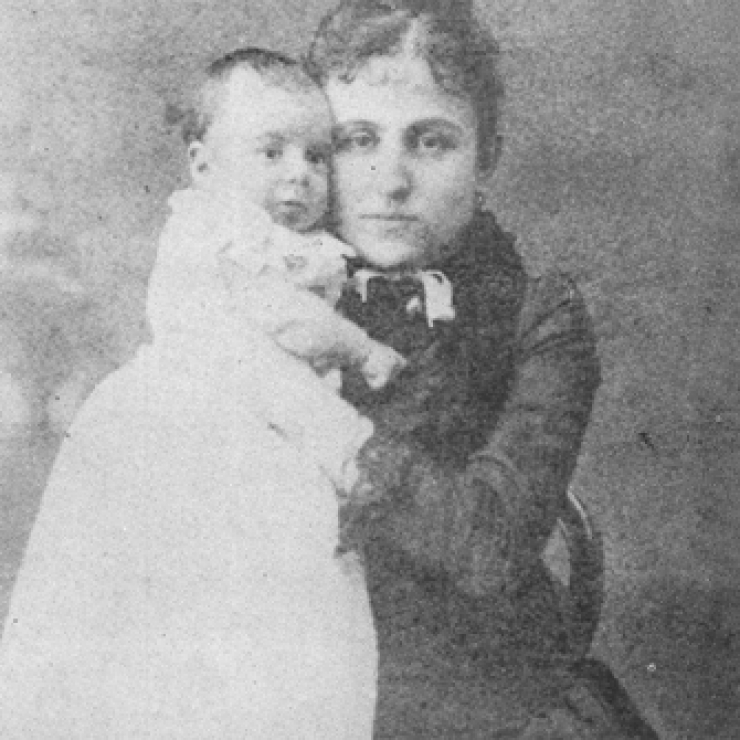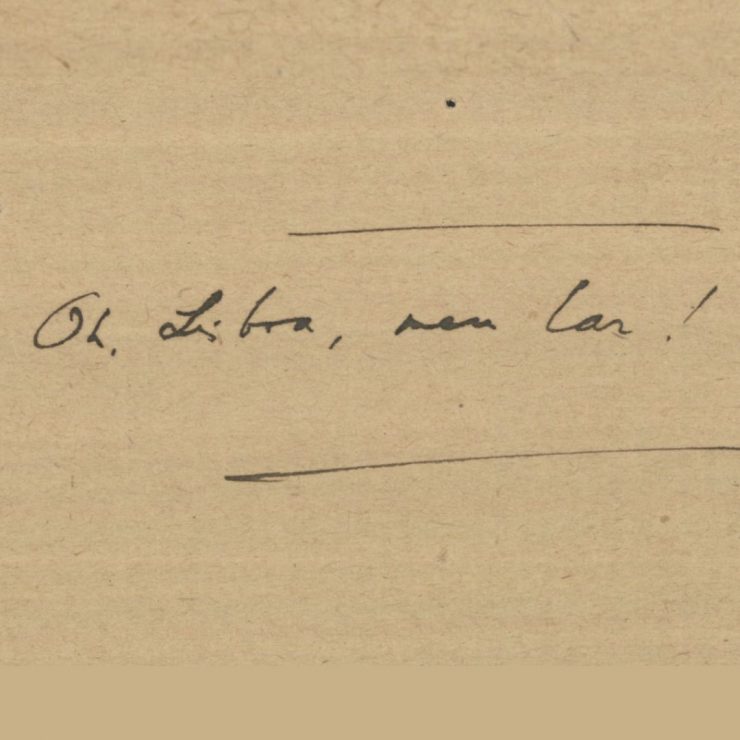In the beginning of the 20th-century, hotels represented cosmopolitanism and the advances of the modern era, which was steadily growing with the technology used in transportation, which enabled increasingly more rapid movements and increasingly more international journeys across the world.
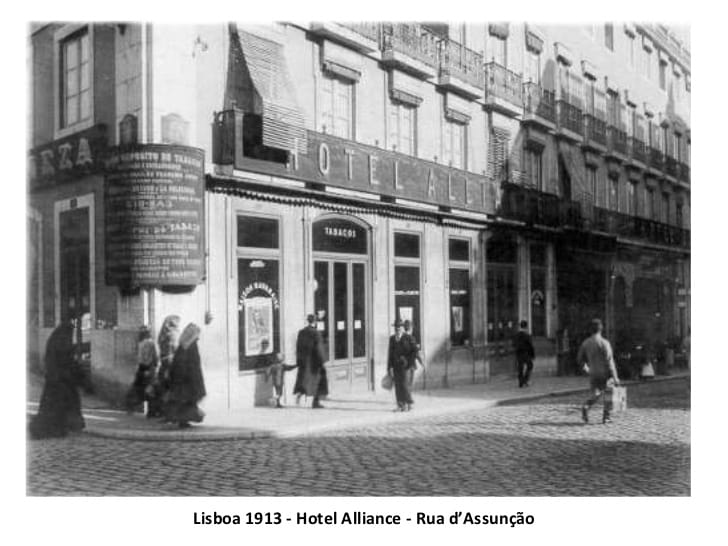
The modernist and cosmopolitan dream of the Orpheu Generation was peculiarly experienced by the poet Mário de Sá-Carneiro, Pessoa’s best friend, who wrote several letters to Pessoa while staying hotels in European cities, such as Barcelona and Paris. It was in a hotel in the French capital that, in 1916, Sá-Carneiro committed suicide, forcing his friend Pessoa to grieve, in a vernal and melancholic Lisbon, a city that in 1934 was still being exulted by the author of Mensagem in verses dedicated to his only great friend:
‘It is as if I am eternally waiting for
Your certain and familiar arrival
Done there, in the Arcada café –
Almost in the extremity of this Continent;’
Fernando Pessoa attended hotels,at least, in Lisbon, when his relatives visited the Portuguese capital where he lived, and during trips made by himself, as in 1909 to Portalegre, where he went to buy the equipment to set up the Íbis typography, in Lisbon, the first attempt, among several others, of the frustrated entrepreneurship of Pessoa.
As for his work, a cosmopolitan and little-known hotel image is found in an interview with Alberto Caeiro, the “master” of heteronyms. The fictional encounter between the interviewer and Caeiro takes place in a hotel in Vigo, Galicia, a town from where some of Pessoa’s relatives, from his mother side of the family, came. Here’s a passage from the interview:
‘We were introduced by a common acquaintance. And, in the evening during dinner in the Hotel’s […] dining hall […], I had this conversation with the poet, which I eagerly converted into an interview.
I told him of my admiration for his work. He listened to me as one who receives what is owed to him, with that astonishing and fresh pride that is one of the greatest traits of the man, whom, as we may assume, is entitled to it.’
The image of the hotel acquires a more complex, psychological and philosophical sense in two of Pessoa’s works, almost diaries of sorts, the Book of Disquiet and The Education of the Stoic. The author of this second book, the pessimistic Baron of Teive, another creation from Pessoa’s heteronym laboratory, leaves his only manuscript in the drawer of a hotel, before committing suicide. A manuscript that, in the fiction of his heteronyms, Pessoa will find later. In Teive’s words:
‘I did not want to leave the book on the table in my room, and therefore subject it to the suspiciously clean hands of hotel servants, I opened the drawer, with some effort, and pushed it back.’
It seems evident, in Teive’s fictitious biography, a similarity with the final moments of the life of Sá-Carneiro. Less sad, albeit still restless, is the image of the hotel that appears in excerpts from the Book of Disquiet, like this one, written approximately a century ago, in 1919:
This, then, is my most favourite of dreams, which I shall put in writing. Sometimes at night, […] launch into the dream that I am retired major in a provincial hotel, lingering on after supper, for no reason along with a couple of other more sober guests.’
Solitude, suspension, timelessness, abnegation … There are the sensations and ideas that the passage conveys:
‘I imagine I was born like that. I’m not interested in the youth of that retired major, nor know how he rose up the ranks to arrive at the position I so long for. Independent of Time and Life, the major I imagined myself to be has no past life, no parents; he exists eternally in that provincial hotel, weary now of the anecdotes told to him by the other lingering guests.’
Here, this is not the cosmopolitan hotel of dandies and modernist writers; rather, the image presents the hotel as a metaphor for interludes, for existential intersections, for the intermission between the psychological subject and the achievement of himself, for the intermediate space, void of life but rich with poetry, so characteristic of Pessoa’s esthetics, and the Book of Disquiet in particular.
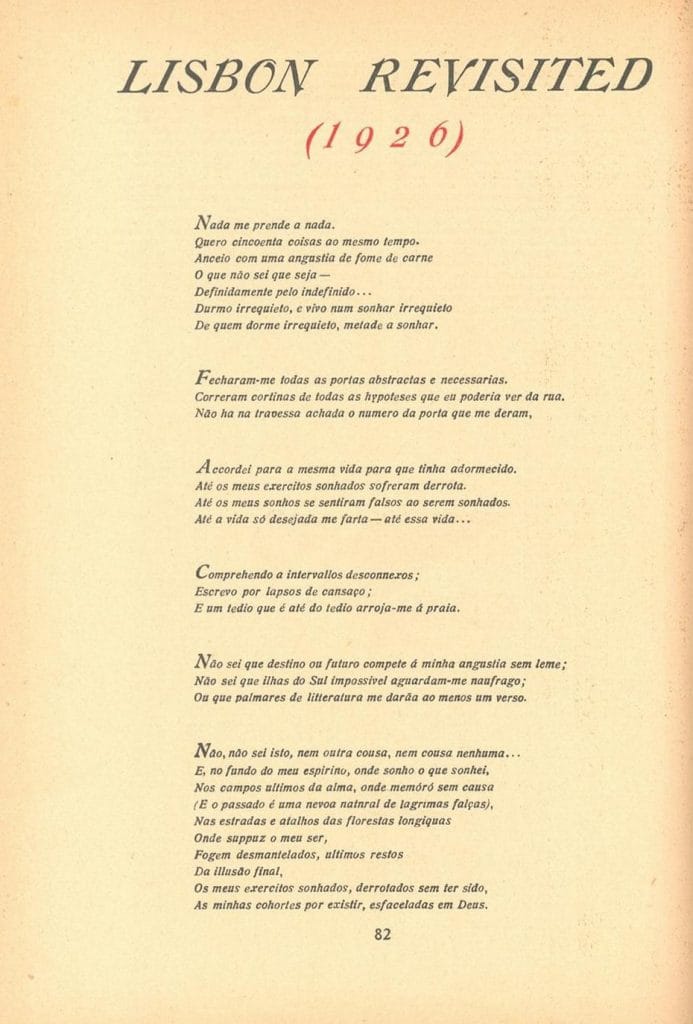
On the same work, the hotel appears once more in another segment, a nostalgic detail of sorts, apparently anonymous, but emotionally significant, as an image for a lived and therefore lost moment, a lament on the weight that the passage of time carries in the writer’s mind:
‘I experience time as a terrible ache. I feel an exaggerated commotion whenever I have to leave anything: the miserable little rented room where I spent a few months, the table in the provincial hotel where I stayed for six days, even the sad waiting room at the railway station where I wasted two hours waiting for the train – alas, but the good things of life hurt me metaphysically when I have to leave them, knowing, with all the sensitivity my nerves can muster, but I will never see or have them again, at least not as they are in that exact, precise moment. An abyss yawns open in my soul and a cold breath from the hour of God brushes my pale face.’
Finally, we arrived at Álvaro de Campos, the most cosmopolitan heteronym, the traveling engineer guided by the motto of “feel everything in every way”, who has, within him, ‘all the dreams of the world’ and brings, within his heart, ‘All the places I have been’. The disengagement of his life as a “passer-by” and a “stranger here and everywhere” emerges further in the poem “The Emigrants,” in which the image of the hotel as a place-not-place reinforces the sense of alienation, impalpability and incompleteness that the work conveys:
‘Alone in the great unfriendly cities,
Not speaking the language that is spoken nor the one that is thought,
Maimed from the relation with the others
After recounting, in their motherland, the triumphs of their stay.
Poor of those who conquer London and Paris!
They return home without better manners or better faces,
Having only dreamt of what they saw closely –
Ever the foreigners.
But I do not laugh at them. Have I done anything else with ideals?
And the purpose that I once cogitated in a hotel, planning the caption?
It is one of the black spots of the biography I failed to have.’
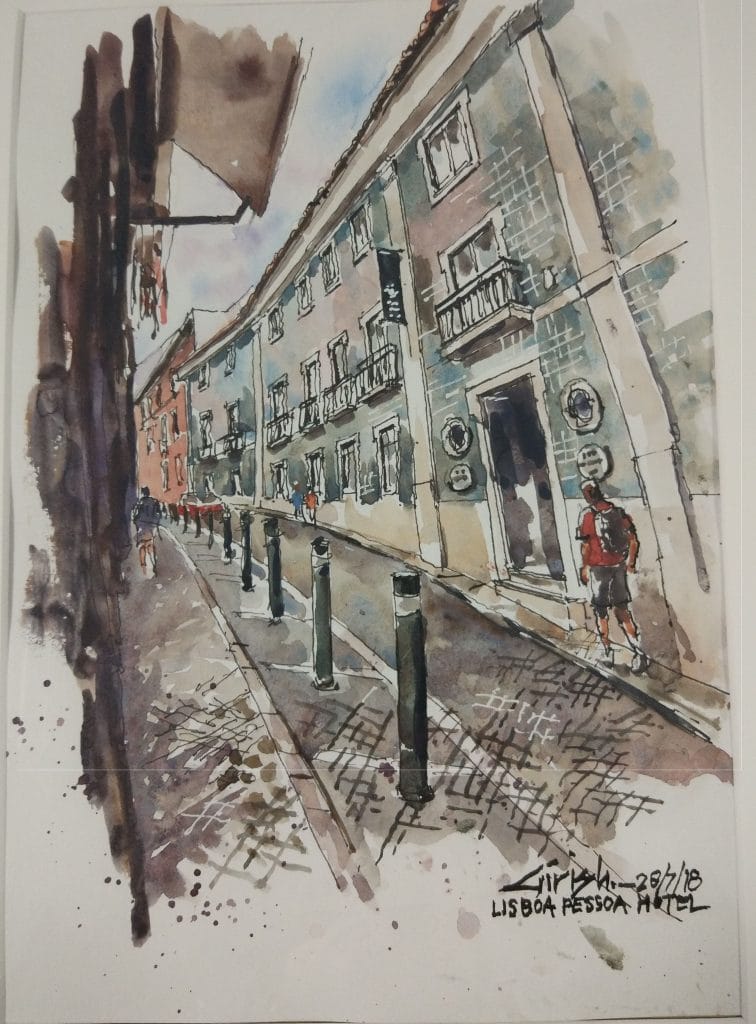
Generally, we see that in Pessoa’s work, the hotel is frequently associated with passages that express pessimism. However, as we have seen, the hotel exists in Pessoa’s imaginary also as a metaphor for the intermediate, the indefinite. This is, in our view, a metaphor for the “nothingness that is everything”, a dimension that is simultaneously unsettling and creative, where which the poet lived and which, in its most vitalistic and dynamic aspect, is summarized in the verses of the aforementioned poem «Tabacaria»:
‘I am nothing.
I will never be anything.
I can’t wish I were anything
Even so, I have, within me, all the dreams of the world.’
In fact, the idea of hotel, also in the sense of “inn”, may be found in the work of Campos also as an image wrapped in the modernist vortex of “Feel everything in every way”.
Everything passes all things parading inside me
And in me every city of the world rustles…
My tribunal heart, my marketplace heart, my stock exchange heart, my bank counter heart,
My heart, the rendezvous of all humanity,
My park bench, bread-and-breakfast, boarding house, jail cell number something heart, […]»
The hotel, therefore, as a place-not-place, as an image of the transitory and the unsubstantial, ends up playing a double role in Pessoa’s daydreaming writing. On the one hand, it represents the disquieting existential emptiness of the contemporary subject and his passing through life without understanding it. On the other hand, reading in a more speculative and indirect manner, it is one of the images of what Pessoa valued the most: to not identify with anything within the continuous transformative metamorphosis of existence, thus being able to become everything, in the eternal dream of poetry.
Generally, we see that in Pessoa’s work, the hotel is frequently associated with passages that express pessimism. However, as we have seen, the hotel exists in Pessoa’s imaginary also as a metaphor for the intermediate, the indefinite. This is, in our view, a metaphor for the “nothingness that is everything”, a dimension that is simultaneously unsettling and creative, where which the poet lived and which, in its most vitalistic and dynamic aspect, is summarized in the verses of the aforementioned poem «Tabacaria»:
‘I am nothing.
I will never be anything.
I can’t wish I were anything
Even so, I have, within me, all the dreams of the world.’
In fact, the idea of hotel, also in the sense of “inn”, may be found in the work of Campos also as an image wrapped in the modernist vortex of “Feel everything in every way”.
Everything passes all things parading inside me
And in me every city of the world rustles…
My tribunal heart, my marketplace heart, my stock exchange heart, my bank counter heart,
My heart, the rendezvous of all humanity,
My park bench, bread-and-breakfast, boarding house, jail cell number something heart, […]»
The hotel, therefore, as a place-not-place, as an image of the transitory and the unsubstantial, ends up playing a double role in Pessoa’s daydreaming writing. On the one hand, it represents the disquieting existential emptiness of the contemporary subject and his passing through life without understanding it. On the other hand, reading in a more speculative and indirect manner, it is one of the images of what Pessoa valued the most: to not identify with anything within the continuous transformative metamorphosis of existence, thus being able to become everything, in the eternal dream of poetry.
Fabrizio Boscaglia
_
Discover Lisboa & Pessoa from Lisboa Pessoa Hotel, a themed boutique hotel inspired by Fernando Pessoa.

